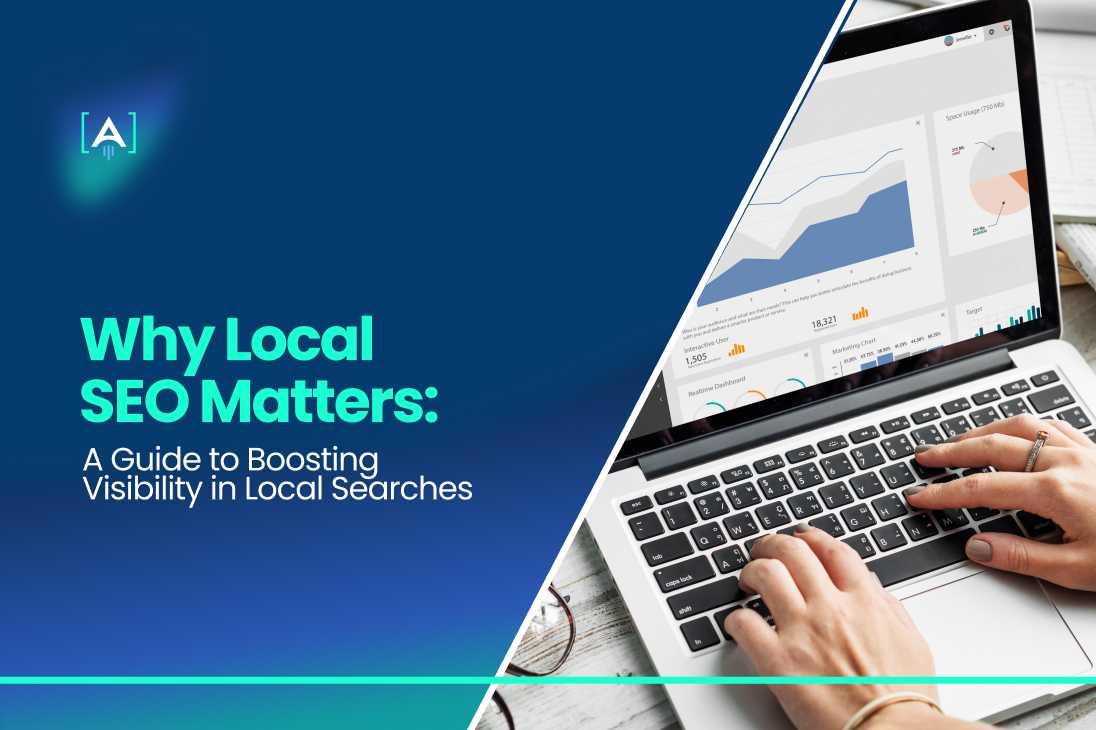As a driven startup founder, you’re aiming for success in a world filled with competition. Taking on major companies like Microsoft, Amazon, and Apple for national attention might seem tough, but local SEO offers you the opportunity to excel, outperform local competitors, and engage with your community’s target audience in a professional manner.
That’s why local SEO matters.
Local SEO is a powerful way to increase your visibility in search engine results among people who live near your office or shop.
Moreover, a thorough local SEO audit can identify opportunities for improvement, ensuring that businesses maximize their online presence and capitalize on local search potential.
But how can you exactly use local SEO for your business?
To start on the right foot, we have put together a guide to local SEO, which includes the following:
- What is meant by Local SEO
- Why is Local SEO Important?
- The key factors that make up Local SEO
- How to optimize your website for Local SEO
- Tips for building local citations and optimizing them
- Tips on using social media to promote your business in the local area
- Ways to track the success of your Local SEO efforts
Now let’s get started!
What is Local SEO?
You’ve heard about SEO (search engine optimization), which is a way to boost your site’s visibility in search engine results.
Local SEO takes it further by optimizing your site for searches tied to a physical location.
For example, when someone in Los Angeles Googles “vegan restaurants near me,” the search engine will display local results within a certain number of miles from the user’s location.
Why is Local SEO Important?
Local SEO is essential because it helps you get found by people in your area looking for products and services like yours.
Some key stats to help you understand the importance of Local SEO:
57% of local search queries originate from mobile devices or tablets
46% of local partners implemented SEO, recognizing its value as a marketing strategy. Among them, 79% consider it to be an effective channel for reaching their target audience.
13.8% of local SERP clicks are attributed to Google’s Local Services ads, showcasing their significance in the search landscape.
42% of local query searchers choose results within the Google Maps Pack, highlighting its importance for businesses seeking local visibility.
And here are five more reasons why local SEO is so important:
1. It increases visibility in local searches.
2. It helps you reach a wider audience by targeting people who may not have heard of your business before.
3. It allows you to showcase reviews and testimonials from customers in your area, which can help increase trust and legitimacy.
4. It puts you ahead of the competition by helping you to rank higher in local search engine results.
5. It helps you attract more customers, as they are more likely to purchase from businesses that appear in searches.
The Key Factors that Make Up Local SEO
Local SEO seems quite simple when looking from afar, but there’s more to it than meets the eye.
To be successful with Local SEO, you’ll need to optimize certain key factors, including:
Local Pack
This box appears at the top of search engine results pages when a local query is made. It shows three listings from businesses in the area, their ratings, contact information, and a link to their website.
Local Service Ads
These sponsored ads, like GoogleAds, appear when users type in an intent-based query, such as “restaurants near me.” They are specifically designed for local businesses and appear higher in the SERPs than organic listings.
Localized Organic Results
These organic (or unpaid) search engine results are tailored to the user’s location. They appear lower in the SERPs than Local Pack and LSAs, but can still be an effective way to show up in local searches.
Map Pack
The map pack is a box that appears at the top of search engine results pages when a query includes a location. It shows three listings from businesses in the area, their ratings, contact information, and a link to their website.
It only differs from the local pack in showing the business’s location on a map. Google maps are the most popular map pack, but other search engines like Bing and Yahoo have their own versions.
How to Optimize Your Website for Local SEO
When it comes to local search engine optimization, there are a few key things you’ll need to do. Here are some of the local SEO strategies to consider;
Google My Business
Google My Business is a free listing service that allows businesses to create, manage, and optimize their listings in Google search results.
It has become one of the most critical aspects of local SEO, allowing businesses to appear in Local Pack and Map Pack listings.
Why GMB is important for Local SEO strategy
Regarding local SEO, Google My Business is your one-stop shop for optimization. It helps you create and manage a listing that will appear in search engine results, as well as helps you to track and manage customer reviews.
It also allows you to include important information about your business, such as an address, opening hours, phone number, and more.
Here are key reasons why GMB is essential for local SEO:
1. It helps you rank higher in local search rankings as Google prioritizes businesses with an optimized GMB listing.
2. It makes it easier for customers to find you, as they can access your business information directly from the search engine results page.
3. It increases visibility, allowing you to include images and videos in your listing.
4. It allows you to monitor customer reviews, which can help you understand how customers view your business.
5. It allows you to track metrics such as search impressions, clicks, and more.
The key GMB features
Google My Business has several features that can help you optimize your listing for local SEO:
1. Business Information – This section allows you to include important information about your business, such as an address, contact details, opening hours, and more.
2. Photos – This section allows you to include images of your business or products, which can help increase visibility.
3. Reviews – This section allows customers to leave reviews of your business, giving potential customers an indication of what it would be like to work with you.
4. Insights – This section allows you to track metrics such as search impressions, clicks, and more which can help you understand how customers engage with your listing.
5. Posts – This section allows you to share updates and announcements about your business and create events or offers that can be viewed directly in search engine results.
6. Messaging – This section allows customers to message your business directly through the GMB listing, making it easier for them to get in touch.
7. Website – This section allows you to link to your website from the GMB listing, which can help increase traffic and engagement.
These features make creating an optimized GMB listing easy to help you rank higher in local search results and attract more customers.
How to get listed on GMB
To get your local business listed on GMB, you’ll first need to create a Google account. Once that’s done, you can start by heading to the GMB website and clicking the ‘Sign Up’ button.
From there, you’ll be asked to enter details about your business, such as name, address, phone number, and more. Once you’ve filled out the information, click ‘Finish’ to complete the setup process.
You’ll then be asked to verify your business by postcard or phone call (this is important as it helps Google confirm that you’re a legitimate business). Once that’s done, you can start optimizing your GMB listing for local SEO.
On-Page Ranking Factors
Your pages must be optimized for local SEO if you want them to appear in search engine results. This includes ensuring your content is unique and relevant and has keywords relevant to your business and location.
Let’s look at some of the key on-page local ranking factors that are important for Local SEO:
Optimize Your Website Content for Local Keywords
Ensure your content is optimized for local keywords, such as city or state names and services offered in the local area.
For example, if you are a plumber in Los Angeles, you should include keywords such as “plumbing services Los Angeles” or “Los Angeles plumbing services” in your content.
Create Location-Specific Landing Pages
Create a page on your website that is dedicated to each of your service areas.
For example, if you offer services in Los Angeles, San Diego, and San Francisco, you should create three separate pages for each city. If people from those cities search for services related to your business, they can find you easily.
Make sure your NAP (Name, Address & Phone Number) is up to date everywhere
If you’re on social media or other websites, make sure that you include your name, address, and phone number. This will help search engines understand where your business is located and make it easier for customers to contact you.
Also, get your contact information listed on relevant third-party websites such as Yelp to build local citations. These citations signal to the search engine that your business is legitimate and should be included in Local Pack and Map Pack listings.
Optimize Titles and Meta Descriptions for Local Search
Make sure that your titles and meta descriptions are optimized for searches.
Meta descriptions are the small snippets of text that appear in search engine results, so it’s essential to ensure they are relevant and contain keyword phrases related to your business and location.
For example, if you own a vegan bistro in Los Angeles, your title and meta description include phrases such as “vegan restaurants in LA” or “vegan bistro in Los Angeles.” This will help your website rank higher in local search engine results.
Concerning your titles, make sure to include your business name and city in the title for each page. for instance, if you own a vegan bistro in Los Angeles, your title should include “Vegan Bistro | Los Angeles.”
Off-Page Ranking Factors
Besides on-page SEO, off-page SEO is essential for increasing your visibility in searches.
Off-page SEO involves activities such as link-building, which is getting other websites to link to your website. This helps the search engine understand that your website is legitimate and should be included in search engine results.
Here are some factors to consider when it comes to off-page SEO:
Build Local Citations
Local citations refer to mentions of your business name, address, and phone number on other websites. These are important for local SEO as they signal to search engines that your business is legitimate and should be included in local search results.
Be careful in choosing where to get listed, as some websites may be irrelevant or have a bad reputation.
Optimize Your Google My Business Page
As mentioned earlier, your GMB page is one of the most important aspects of local SEO. It’s important to ensure that all the information is up-to-date and accurate, as this will help search engines understand that your business should be included in a local search.
Some ways to optimize your GMB page include:
1. Adding photos and videos to showcase your business
2. Using keywords in the description section
3. Responding to customer reviews
4. Adding events or offers
Monitor & Engage in Online Reviews
Online customer reviews can greatly impact your local SEO, so it’s important to keep an eye on them and respond when necessary.
Reviews help customers understand what it would be like to work with you and can either make or break your reputation. It’s essential to respond to any negative reviews professionally and engage with customers who leave positive reviews.
This will help build trust and legitimacy and boost visibility in searches.
5 Tips for Building Local Citations and Optimizing Them
Claim & Update Your Business Listings
The first step is ensuring your business information has been claimed and updated across multiple online directories.
Use Structured Data Markup
Structured data markup can help you get more visibility in SERPs by providing search engines with additional information about your business, such as opening hours, contact information, reviews, etc.
Submit to Local & Niche Directories
Submitting your business to local and niche directories is a great way to get targeted exposure in the local market.
Monitor Your Online Reviews
Monitoring and responding to online customer reviews will help you build trust among potential customers looking for businesses like yours.
Get Featured on Local News & Media Outlets
Being featured in local news outlets and media publications is a great way to show potential customers that you’re a trustworthy business.
Tips on Using Social Media to Promote Your Business in The Local Area
- Choose the Right PlatformsChoose the right social media platforms relevant to your industry and target demographic. For instance, if your business is focused on a younger audience, Instagram and Snapchat may be more appropriate than LinkedIn.
- Develop a Local PresenceMake sure to create a solid local presence by connecting with other businesses and influencers in the area. Influencer marketing can be an effective way to reach potential customers.
- Focus on Engagement & ConversationSocial media is about engagement, so focus on interacting with your followers rather than pushing out a marketing message. You can also use polls and questions to start conversations with your followers.
- Share Local ContentShare content relevant to your local market, such as news and events. For example, if a music festival is happening in your city, you can post about it and encourage people to attend.
- Leverage User-Generated Content
Encourage customers to post photos and videos of your business on social media for additional exposure. For example, if you own a restaurant, you can create a hashtag and encourage customers to post photos of their experience. This will help build trust in your business and attract new customers.
Ways to Track the Success of Your Local SEO Efforts
Monitor Website Traffic
Use analytics tools like Google Analytics to track how much traffic your website gets from a local search.
Check Rankings in SERPs
Check your local rankings regularly and focus on optimizing pages lower down in the ranking.
Monitor Local Listings and Citations
Keep track of your local listings and see how many citations you have to ensure your business information is accurate everywhere.
Track Online Reviews & Ratings
Monitor online customer reviews to ensure you provide a good customer service experience for every customer.
Analyze Social Media Engagement
Use analytics tools to track how much engagement your social media posts are getting from local customers.
Start Your Local SEO Journey and Boost Your Visibility
Local SEO success requires a combination of on-page and off-page SEO tactics. However, with the right approach and effort, you can increase your visibility in searches and attract more customers to your business.
We hope this guide has helped you understand the basics of local SEO and given you some tips on how to get started. Best of luck on your journey!










